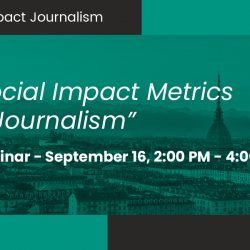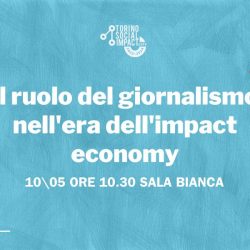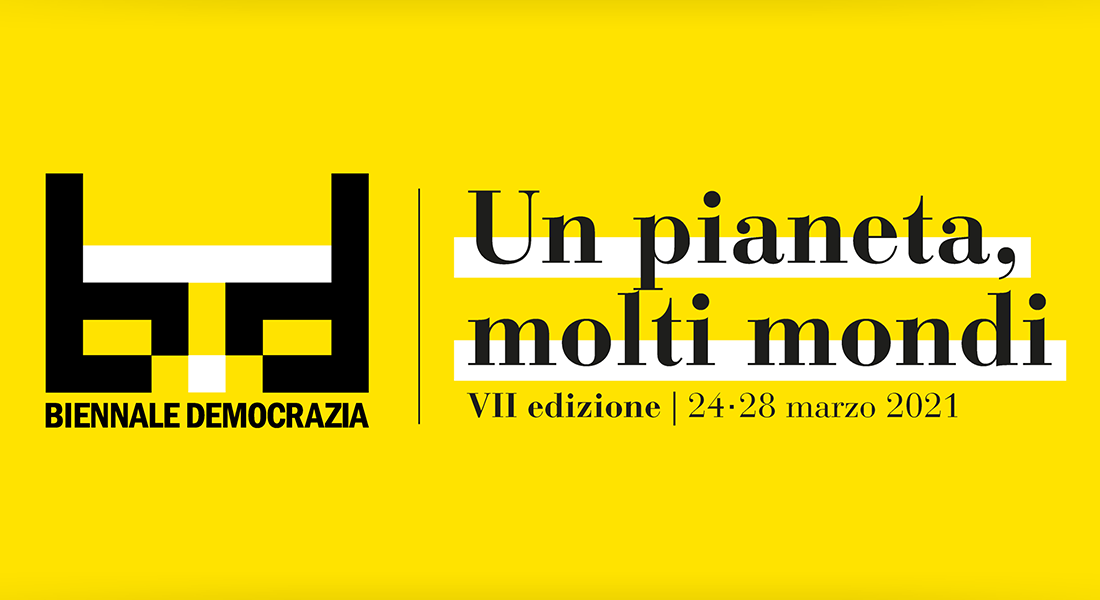Biennale Democrazia – an international cultural event involving citizens and in particular young people from schools and universities – will return to Turin from Wednesday 24 to Sunday 28 March 2021 with the seventh edition entitled “One planet, many worlds”.
The focus will be on our condition as inhabitants of a single planet, today increasingly connected but increasingly fragmented, with particular attention to the many factors that make it difficult to find common answers to problems of global significance. The health emergency has provided an exemplary demonstration of our dependence on the global context: for better or worse, in vulnerability as well as in solidarity. But it has also shown how important are the links – affective, cultural, political, legal – that place people in direct relationship with each other, shaping spaces of citizenship and what is perceived as “one’s own world”. We inhabit the same land, but we belong to different worlds.
The theme of the seventh edition of the Biennale Democrazia is divided into four paths to offer a broad and articulated reflection starting from a plurality of points of view.
- Planet-World. The demands of an environmentalist movement made up mostly of young citizens strongly show the urgency of returning to the discussion of global problems, aggravated today by the pandemic and its economic and social effects; among these also the new risks of nuclear conflict or biological weapons, developments in genetic engineering or artificial intelligence, the economically deflagrating potential of financial flows.
- Worlds against. In the face of increasingly connected societies, the fractures around which mutually hostile worlds are emerging are deepening: opposing geopolitical blocs, but also bitter conflicts, especially in democratic societies, today exacerbated by the social crisis that is maturing following the health crisis. It becomes so urgent to confront both the growth of economic inequalities and the exploitation of labour, and the pressing demand for identity and nationalist policies.
- Politics and other spheres. While the past few decades have accustomed us to think of politics as a compressed form on the stage of economic and technological globalisation, the world health crisis has once again shown its irreplaceable function. Thus the need to investigate the relationship between politics and other spheres of social life returns: first of all science, but also the economic sphere, the media, the world of culture and public opinion in general.
- New worlds. In times of crisis, there is a renewed need to look to the future to give new form to reality. Hence, the need to return to the paths traced by literature,
from artistic creativity and the encounter with unknown worlds and to experiment with new looks on a saturated world like ours, renewing the drive to imagine possible futures, first of all from a political and social point of view.
TRAINING PATHS
Biennale Democrazia wants to be a support for students and teachers, confirming its commitment to support higher education and civic education. In preparation for the 2021 edition, BD is once again proposing four thematic courses to high schools in Turin and Italy, with the aim of providing students with analysis tools and keys to interpreting the emergency phase that has affected society as a whole and, above all, to reflect on the future transformations that already today give a glimpse of tomorrow’s world.
1) Cities; 2) Changes. Changes; 3) Counting in the world. The right to be counted; 4) Work in progress? Past, present and future of work: four paths structured by usable modules
by students both remotely and in the classroom with the mediation of the teachers. With particular attention to the interaction between students, the courses will offer a wide range of teaching materials (video, audio, readings, images) prepared by the Biennale Democrazia trainers. In light of the unprecedented conditions of these months, it has been decided to opt for video lectures accompanied by proposals for functional activities to promote reflection and discussion. The materials will be usable by all high schools in Italy, and classes in Turin who request them will be guaranteed an in-presence or distance meeting that will allow students to discuss with the trainers.
TWO CALLS TO PARTICIPATE
After the success of the previous editions, this year Biennale Democrazia launches two calls in order to promote openness to new audiences and new associations. The call Become an author
of BD 2021 is addressed to all citizens who wish to propose topics for discussion in the next edition. As part of a wider project to relaunch the cultural realities of the City, the second call will be
This year is reserved exclusively for associations in the Turin metropolitan area who want to contribute to the implementation of an initiative during the five days of the event. Biennial
Democracy will select up to 5 citizens’ ideas and up to 10 organisations’ projects. All proposals must be submitted by 15 October 2020 by filling in the dedicated form available on the biennaledemocrazia.it website.
Popular
 “Metrics of social impact in… 1 August 2024
“Metrics of social impact in… 1 August 2024  Turin is the 2024 European Capital of Innovation (iCapital) 14 November 2024
Turin is the 2024 European Capital of Innovation (iCapital) 14 November 2024  “Foundations and Principles of Solutions… 27 May 2024
“Foundations and Principles of Solutions… 27 May 2024  Webinar “Fundamentals and principles of… 17 May 2024
Webinar “Fundamentals and principles of… 17 May 2024  Social Procurement, the Responsible Choice for… 24 May 2024
Social Procurement, the Responsible Choice for… 24 May 2024  Salone del Libro 2024: Guests of the Event… 24 April 2024
Salone del Libro 2024: Guests of the Event… 24 April 2024 

